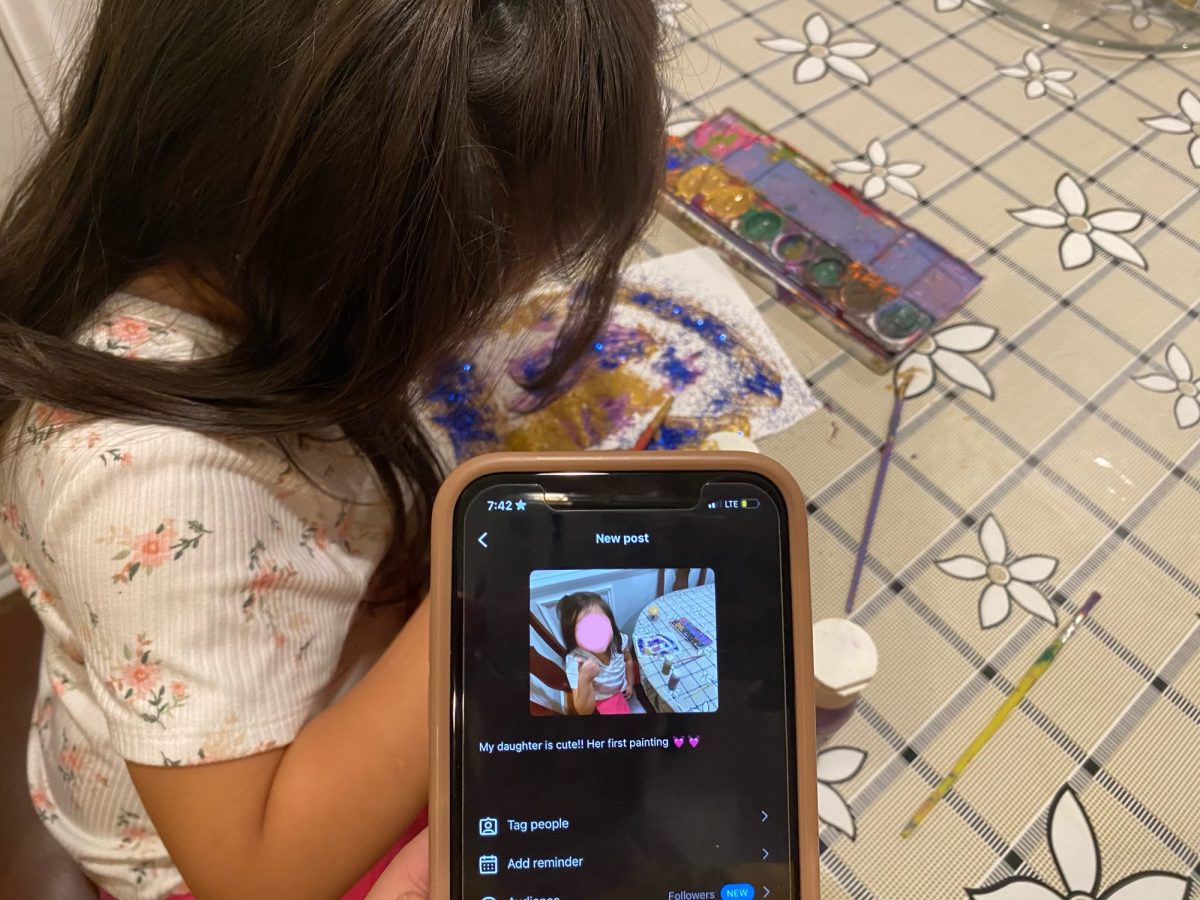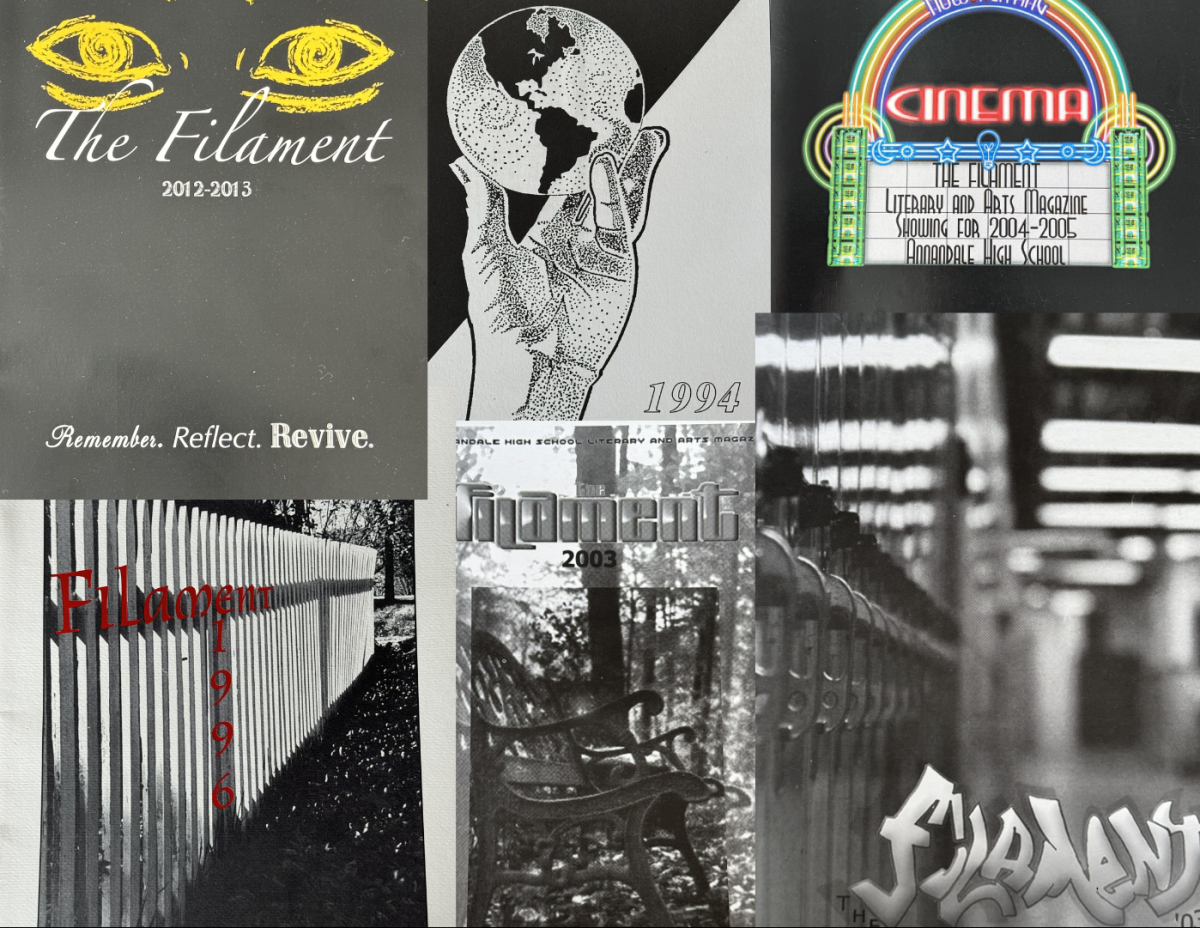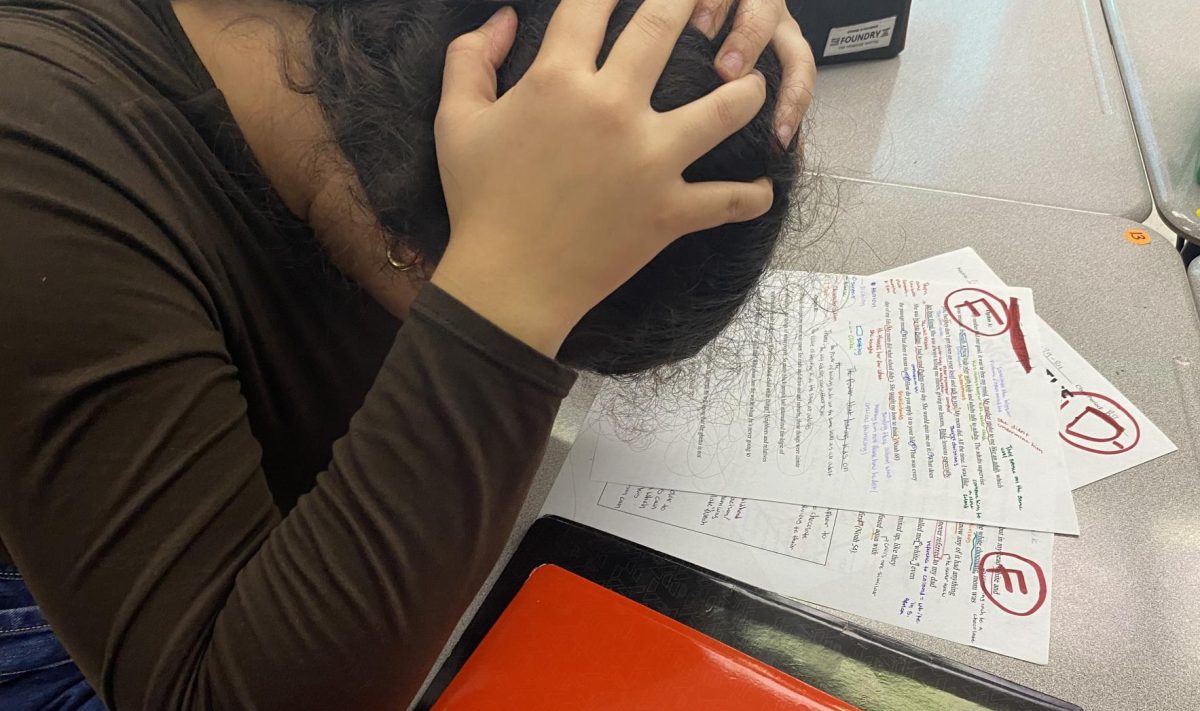Facebook. Youtube. Instagram. Tiktok. All are top social media apps, but who is downloading them?
When a new user first scrolls through these sites, they are bound to find photos of children that their parents have posted.
“First day of school!”
“Birthday bash!”
“Just gave birth!”
But why do these parents post these photos? For attention? Pride? Wealth?
Many parents post photos to share moments of when they’re proud of their child, however, they are not aware of its limitations. It’s natural to want to share your child’s accomplishments but there are boundaries tha must be put in place to ensure that your child is not being harmed.
Due to the advancements of the internet, it is very easy to find out someone’s personal history using just a few pieces of information. Sharing something as simple as age, location, or names could have dangerous outcomes.
The term for this is oversharing, which is the act of spreading personal information in a way which may be harmful towards yourself and others.
That’s why it’s important to make sure you’re using social media safely and effectively.
When you publicly share photos of your child, you expose them to the predators of social media. If you don’t filter who can see what you post, it can lead to unwelcome guests harassing your child, negatively affecting their mental health.
A study from the Child Crime Prevention & Safety Center states, “There are an estimated 500,000 online predators active each day.”
Situations like these are thought to be one in a million. You may think, ‘this wouldn’t happen to me’ or ‘this is being over-exaggerated’. But, it can happen in your very own community with the very people you think you’re safe with.
In a survey held in the FCPS community, an anonymous teenager shared, “[My parents] used to [post pictures of me on their social media] until someone unknown contacted them asking for a favor. In the message they also included pictures from my parents’ social media.”
They did not specifically mention the ‘ favor’ but it can be implied that it was inimical because they mentioned that their parents stopped posting photos and took down all previous posts.
Since the information you post about your child can be accessed by anyone, many online scammers could take advantage of that.
A study by Barclays states, “‘Another decade of parents oversharing personal information online’ will produce 7.4 million incidents per year of identity fraud by 2030.” When you overshare your child online, it makes them potential fraud targets which is something that no one would want for their child.
`Oversharing can also affect you, the parent, just as much as your child.
Social media has always been known to impact various parts of the brain resulting in change of self-esteem, and improving a sense of belonging.
Your mental health can be deeply impacted with your usage of the amount of time you take to overshare online.
According to Asha Patton Smith, a Kaiser Permanente Child and Adolescent Psychiatry, she states, “The relationship between social media and mental health is complicated. One of the basic issues is if you are on social media you are not outside, are not sleeping and are not exercising. These are things that help mental health.”
Social media can impact your child’s self esteem and self consciousness to extreme levels.
According to BMC Psychology, “Concerns have been raised that social media may lead to body image dissatisfaction [6], increase the risk of addiction and cyberbullying involvement [5], contribute to phubbing behaviors [7], and negatively affects mood [8].”
Privacy can be also breached and can lead to a tear in a parent- child relationship. It can be key to a child’s growth especially during the teenage period where many teens experience puberty, self conscious thoughts and experience new things, which can be interrupted by oversharing online.
Based on the same survey, 71% of students experienced their parents posting pictures where they are featured without their consent. Many described their dislike toward online posting without consent through verbiage of embarrassment, frustration, and anger.
Sophomore Ivan Ramirez wrote, “I’d feel uncomfortable with being on the internet and people knowing where I’m at and what I’m doing.”
Another anonymous AHS student felt that their parents’ sharing of them on social media disrespected their privacy.
“It’s not like their accounts are private and they post on the “Friends Only” place. Anyone from school can stalk and find them and see the bad photos of me or my private life.”
Oversharing is a problem and it needs to be addressed.
When parents overshare they put their child’s mental health in danger, exposing them to possible predators, and experience the dangers of identity fraud.
Another anonymous high schooler shared, “My parents have a private account so only selected people can viet their posts.”
Private accounts are accounts in which only approved followers can view your posts, including likes and comments. This setting can be found on any social media platform and can deter from possible predators.
Additionally, always be wary of what you are posting as it is essential to being self aware online. Being able to properly think about what you’re posting online prior to posting can ensure a well thought process to ensure you are not oversharing. Also, asking for consent and letting your child know what you are posting, is essential for ensuring a healthy relationship of communication between parents and their child.
Parents are oversharing their children
Oversharing on social media is a problem that needs to be addressed, especially when it involves children
February 27, 2024
Categories:
Overposting your child on the internet is a form of oversharing information.
Story continues below advertisement
0
More to Discover
About the Contributors

Rossy Soto, Co-In-Depth Editor
Junior Rossy Soto is in her second year working on the A-Blast as a co-In-Depth editor, and was previously one of the co-editors for the Arts Page. She is the founder and president of the Annandale photography club, she hopes to join other clubs. She enjoys designing graphics, photography, listening to music, thrifting and indulging in time with friends and family.

Munira Khalif, Editorials Editor
Junior Munira Khalif is in her second year of the A-Blast as an Editorial editor. Previously, she served as the co-editor for the Arts page, providing a very enriching experience. Her favorite pastimes are spending time with family and friends, listening to music, ice skating, and reading. She is currently pursuing the IB diploma and enjoys participating in various clubs and aspires to further her education to become a neurologist.








